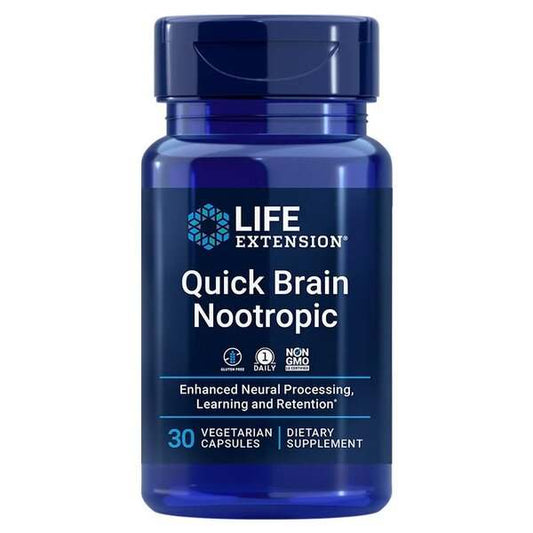
 Instagram
Instagram

Related products
What’s covered?
Why am I so emotional?

Emotions can be intimidating. There are moments in our lives when we believe we are going through emotional turmoil but are unsure why. You then ask yourself, "Why am I so emotional?" Having heightened emotions is perfectly normal, it's part of the human experience, but it can feel alienating.
Perhaps you're feeling a negative emotion like anger, scared, or sadness. Maybe you're happy and optimistic but don't know why. Even positive feelings can be perplexing, leading to the fear that something is too good to be true.
It's okay if we can't always explain why we feel the way we do, some people are just more sensitive. Even so, sometimes the reasons are right in front of us, and acknowledging your current emotional health can be very liberating.
If you are wondering why you are an emotional person or what might be causing complex emotions, we have listed some reasons as to what might affect mood.
Reasons for being emotional
Emotions are what distinguish us from robots, so it's normal for them to fluctuate between happy, content, and sad at times. Sometimes you don't even know why you're feeling emotional and keep asking yourself, “why am I so emotional?” If it seems to happen a lot you might consider seeking support and you should if this is the case. Here are some reasons you might be experiencing changes in your mental health:
You Are a HumanYou might be having an emotional day today. However, guess what? You have the right to be. We all experience happiness, sadness, lows, and highs. Being emotional makes us human and its normal. Everyone reacts differently to events and emotions.
You may simply be more sensitive than others, or you may be feeling particularly sensitive today. If someone tells you to be less emotional, they are most likely referring to societal norms. Don't let them discourage you. There is no such thing as the most emotional person, everyone has them and people just deal with them differently. Remember, emotions are not insignificant.
GeneticsSome individuals are undeniably more sensitive than others. While feelings are normal, being a highly sensitive person may be hereditary. According to research, genetics can influence 20% to 60% of your temperament. Sensory processing is a personality trait. Sensitivity is the ability to process the world more deeply. Other people's feelings and moods, as well as distress and loud noises, fall into this category.
Lack of SleepNot getting enough sleep can make it difficult to identify your emotions and have an overall negative effect on your emotional wellbeing . Sleep deprivation has been shown in studies to affect emotional processing, making emotions feel heightened. In addition to irritability and mood swings, insomnia has been linked to rumination, which is defined as repetitive thought processes and excessive worrying.
Unhealthy DietNutritional psychiatry is thriving for a reason: research shows that food can have an impact on your mental health and your body's ability to process and balance neurochemicals. That is, what you eat affects how you feel, which in turn influences your overall well-being. A poor diet can damage your overall health.
A high-quality Mediterranean diet, for example, has been linked to emotional well-being, particularly in women. In case you're wondering, that's a diet rich in vegetables, fruits, whole grains, fish, and legumes. Consider your diet for the previous week if you're feeling heightened emotions.
Lack of Physical ActivityExercise on a regular basis has been shown to help with emotional regulation, during exercise your body releases endorphins that can greatly improve mood. The physical activity doesn't have to be strenuous, but it will help you sleep better and feel better, both physically and emotionally.
StressOur bodies can suffer as a result of stress. If you're stressed or exhausted, you're probably going to feel emotional. There are numerous reasons why you may be stressed. For example, no matter how well you plan for it, major life events or major changes will inevitably cause stress.
According to a 2018 study, living with high-stress levels can also increase negative emotions such as anger or depression. The study found that the more stressed you are, the more you ruminate on what is stressing you out, which increases your negative emotions.
If you are feeling stressed or perhaps overwhelmed, seek support here.
GriefGrief is a diverse, complicated, and messy experience. Grieving the loss of someone is one of the most difficult experiences that we all share. So it's normal if you're not feeling yourself or if your emotions aren't the same.
Moreover, grief does not have to be limited to the loss of a loved one. You can be sad for your former self or even a breakup. We all react differently to loss and go through the stages of grief at different times, and we may not come out the same.

Mental Health Issues
A variety of mental health conditions can have an impact on mood. They are as follows:
-
Bipolar disorder
-
Depression
-
Generalized anxiety disorder
-
Post traumatic stress disorder
-
Personality disorders
It's critical to understand the distinction between stress and anxiety. Stress is usually a reaction to something specific in your life and will pass. Anxiety is defined as prolonged worry for no apparent external cause. When anxiety is chronic, it can develop into an anxiety disorder, which can have a major effect on your emotional regulation.
Hormonal ChangesHormones affect the body in both physical and psychological ways. Any hormonal imbalance or increased sensitivity to hormonal changes can alter your emotions.
Testosterone
The hormone testosterone is also involved in male emotional regulation and can have a negative impact on mood.
Testosterone levels decline with age, and medical conditions can contribute to low testosterone levels. These include genetic conditions such as hemochromatosis, genital injury, and cancer.
The female body produces testosterone as well. However, in some cases, such as polycystic ovary syndrome (PCOS), it produces excessively, disrupting normal hormone levels. This can also cause mood swings.
Oestrogen
Hormonal fluctuations related to the reproductive cycle in people assigned as female at birth can cause mood swings and difficulty controlling intense emotions in some people.
This is especially noticeable during menopause when fluctuations in oestrogen levels can lead to increased levels of negative emotions such as anger or sadness.
This can also happen before menstruation in a condition known as premenstrual syndrome (PMS) or premenstrual dysmorphic disorder, which is similar to PMS but has more severe emotional symptoms.

Wrapping Things Up
Consult a healthcare professional if you believe your emotions are out of control or if you believe they are the result of an underlying health problem. They can assist you in determining the source of the problem or refer you to a specialist.
Some intense or negative emotions are natural. If your feelings are causing you distress or have a negative impact on your life, you do not have to accept them. There is assistance available.






























 Rated Excellent by 26,523+ Reviews
Rated Excellent by 26,523+ Reviews